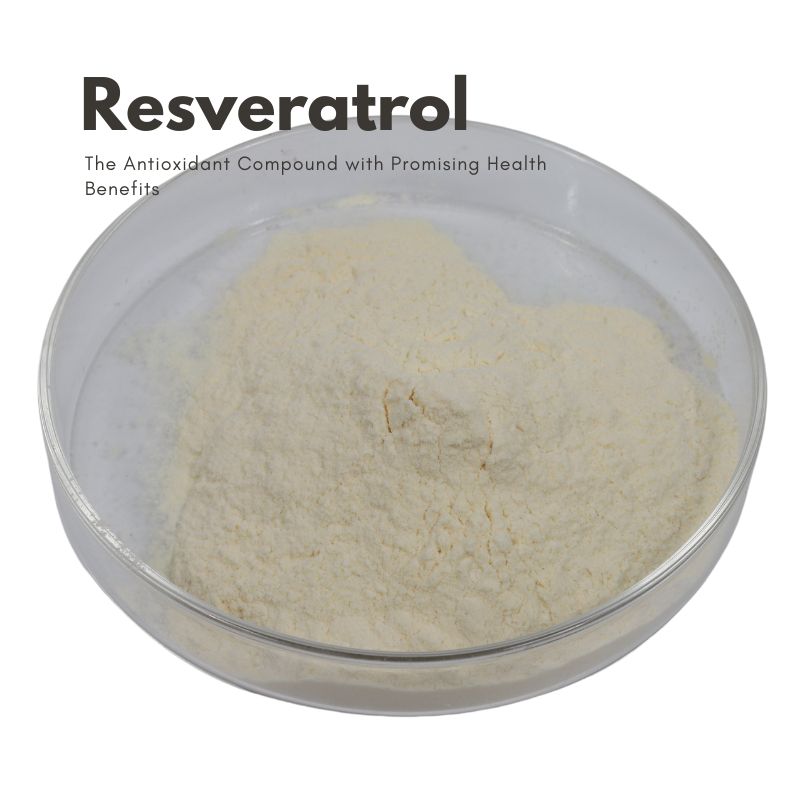What is the Health Benefits of Resveratrol & Some precautions
Resveratrol: The Antioxidant Compound with Promising Health Benefits
Resveratrol is a naturally occurring polyphenol compound found in the skin of red grapes, peanuts, and some berries. It has been the subject of numerous studies over the years due to its potential health benefits. Resveratrol is mainly known for its antioxidant and anti-inflammatory properties, which have led some to suggest that it may have a role in the prevention and treatment of various diseases. In this blog post, we will explore the potential health benefits of resveratrol and the research behind them.
Antioxidant Properties
One of the most well-known benefits of resveratrol is its antioxidant activity. Antioxidants help to protect the body from oxidative stress, which is a process that damages cells and contributes to the aging process. Resveratrol has been shown to scavenge free radicals, unstable molecules that can cause oxidative damage to cells and DNA. This suggests that resveratrol may protect against diseases associated with oxidative stress, such as cancer, diabetes, and Alzheimer's disease.
Anti-inflammatory Properties
Resveratrol has also been shown to have anti-inflammatory properties. Inflammation is a natural response by the body to injury or infection, but chronic inflammation can contribute to the development of various diseases, including heart disease, arthritis, and cancer. Resveratrol has been found to inhibit the production of inflammatory cytokines, which are molecules that contribute to the inflammatory response. This suggests that resveratrol may have a protective effect against inflammation-related diseases.
Potential Health Benefits
Due to its antioxidant and anti-inflammatory properties, resveratrol has been suggested to have many health benefits. Here are some of the most promising potential health benefits of resveratrol:
1. Cardiovascular health: Resveratrol may positively affect cardiovascular health by reducing inflammation, improving blood flow, and preventing the oxidation of LDL cholesterol.
2. Anti-cancer: Some studies have suggested that resveratrol may have anti-cancer effects by inhibiting the growth of cancer cells and inducing apoptosis (programmed cell death).
3. Neuroprotection: Resveratrol has been shown to have neuroprotective effects, which may help to prevent neurodegenerative diseases such as Alzheimer's disease.
4. Anti-aging: Resveratrol may have anti-aging effects by protecting against oxidative stress and inflammation, which are two processes that contribute to the aging process.
50% and 98% of the resveratrol provided by Qherb are mainly extracted from Polygonum cuspidatum, grapes, peanuts, and other sources. The extraction content is low, the process is complex, and the cost is high. Compared with synthetic resveratrol, the resveratrol extracted from Polygonum cuspidatum is purely natural and has increased safety, so it has a more comprehensive range of applications and broader prospects.
Currently, there is no official recommended daily intake of resveratrol, but some studies have put forward some suggestions.
According to the current study, the recommended dose range of resveratrol supplement is 100-500 mg/day. However, it should be noted that the optimal dose of resveratrol varies according to individual differences and specific uses.
When using resveratrol supplements, there are several points to be noted:
1. It is recommended to use it under the guidance of a doctor. If you are taking drugs or have any health problems, you should consult your doctor about whether resveratrol suits you.
2. Use according to the instructions. Do not exceed the recommended dose, and do not use expired products.
3. Choose a reliable brand. When purchasing resveratrol supplements, select tested and approved brands.
4. Pay attention to quality. Resveratrol is an unstable compound easily degraded by light, heat, air, and other factors. Therefore, products with good storage conditions should be selected
Conclusion
Resveratrol is a naturally occurring compound that has been the subject of numerous studies over the years due to its potential health benefits. Its antioxidant and anti-inflammatory properties have led some to suggest that it may have a role in preventing and treating various diseases. While more research is needed to understand the potential health benefits of resveratrol fully, the available evidence suggests that it may have a promising role to play in promoting health and preventing disease.



 Healthier Future
Healthier Future